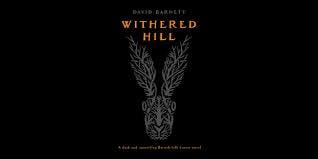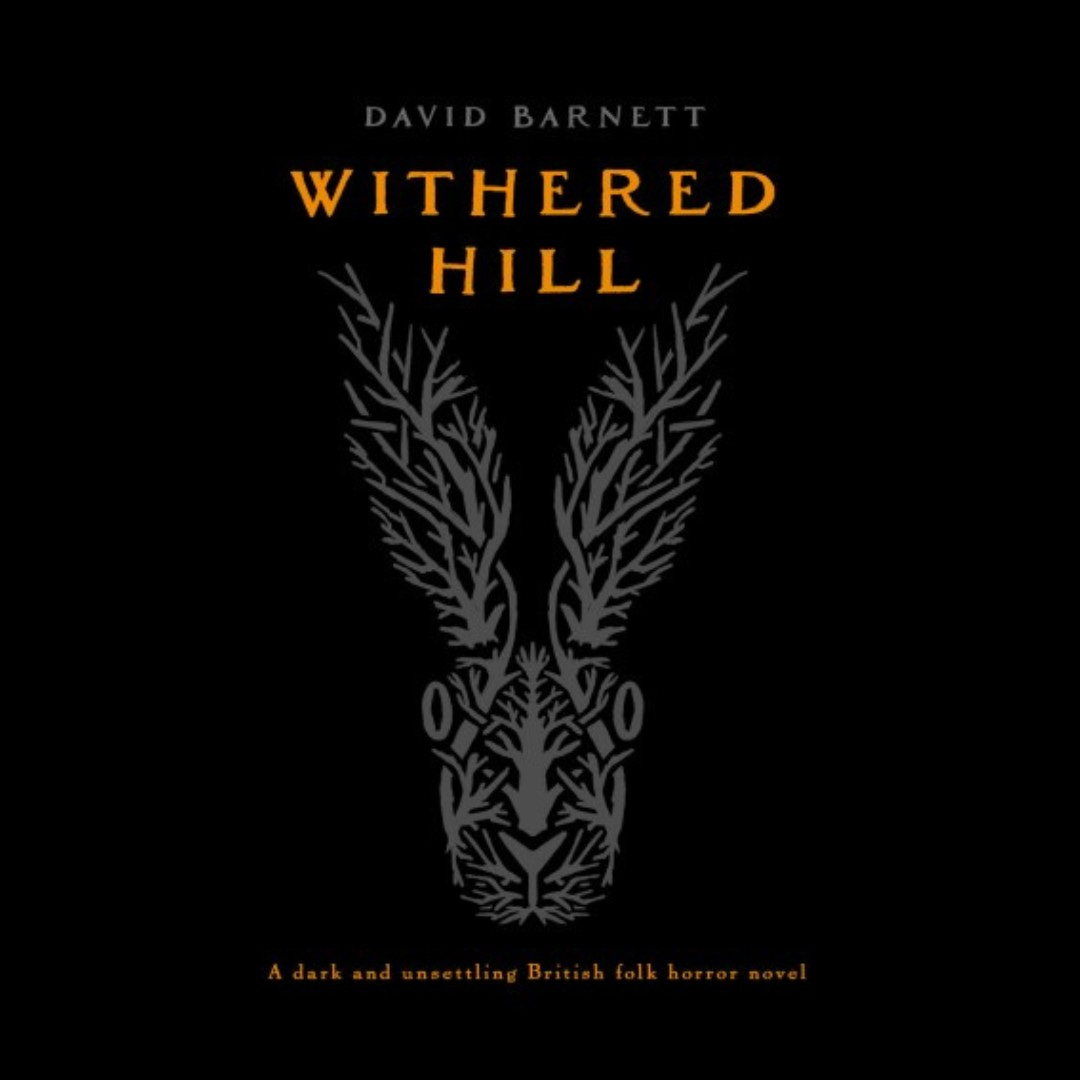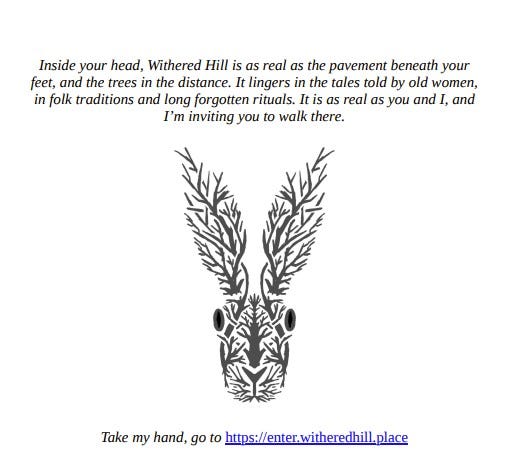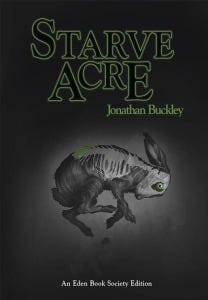Two Folk Horror Book Reviews and an Update on the Year of the Great ReRead.
Withered Hill, Starve Acre and The Neverending Story
Following on from my folk horror deep dive for The Genre Genealogy Series last week, I’ve decided to review two of the books I recommended at the end of that post.
If you haven’t last week’s post click below.
Withered Hill: If you find your way there, you’re already lost.
“That’s the way of things in Withered Hill.”
Perhaps my favorite of all of the folk horror fiction I have read recently (and there has been a lot!) has been David Barnett’s time-jumping contemporary Withered Hill.
“That’s the way of things in Withered Hill.”
David Barnett's Withered Hill is a captivating folk horror novel that has quickly become a favorite of mine. From the moment Sophie Wickham stumbles out of the woods surrounding the village, with no memory of her past, I was hooked. The villagers' unsettling lack of surprise at her arrival sets the stage for a story steeped in mystery and unease.
Withered Hill isn't just about a lost woman; it's a journey of self-discovery. As Sophie tries to piece together her identity, she's drawn into the strange world of Withered Hill. The villagers, who still worship ancient deities like Owd Hob and adhere to seasonal rituals, are not your typical rural community. Their traditions, which include sacrifices and the belief in the old gods, create a palpable sense of otherness. Yet, amidst the unsettling atmosphere, Sophie also discovers a surprising undercurrent of love, generosity, and a strange sense of belonging.
The narrative unfolds across two timelines, cleverly distinguished by chapter headings: "Inside" and "Outside." We follow Sophie's days within Withered Hill, while also glimpsing the events leading up to her arrival, a narrative thread that gradually tightens the tension. This dual timeline structure enhances the mystery and keeps the reader guessing.
Well-written contemporary folk horror with a strong storyline can be hard to find. Withered Hill delivers on both counts: it's a well-written example of contemporary folk horror with a compelling storyline. It delivers on creepy rural setting, strange customs upheld by the residents, and cryptic messages to Sophie as she tries to work out how to leave. The sense of unease that pervades the entire story is unmatched in anything I read recently. The descriptions of the ancient rituals and the villagers' unsettling calm in the face of the uncanny are particularly effective. For example, the hushed reverence with which they speak of Owd Hob, and the way they incorporate natural elements into their ceremonies, create a truly immersive and chilling atmosphere.
Get ready for a stunning twist ending too. Remember how you felt the first time you watched Fight Club and realized The Narrator and Tyler Durden were one and the same (sorry spoilers but if you haven’t watched Fight Club yet what are you doing with your life?), I got the same feeling– that moment that recontextualizes everything you've read.
I highly recommend Withered Hill to anyone, even those who typically shy away from horror. While the story is rich in unsettling atmosphere and suspense, it avoids gratuitous gore.
BONUS: In the opening pages of the Kindle version of the book (unfortunately the ‘book book’ version is not available in Australia until March) Barnett and his team offer us an added immersive experience. I want to thank
for pointing this out as I did miss the prompt at the beginning of the book in my eagerness to begin the story. If you read Withered Hill don’t skip this added extra.Starve Acre: Blending Grief with Folk-Horror.
Andrew Michael Hurley's Starve Acre, a 2019 novel recently adapted into a film starring Matt Smith and Morfydd Clark, explores grief, the uncanny, and the lingering presence of the past.
Like Withered Hill, Starve Acre is a book following dual timelines (this is not specifically a folk horror trend but something that has been a trend in fiction recently). We follow Richard and Juliette Willoughby and their young son Ewan who have moved to Starve Acre, a home that has been passed down through Richard’s family. Ewan dies suddenly at the age of five and the timelines alternate between the time leading up to Ewan’s death and then the aftermath.
As the narrative progresses towards Ewan's tragic end, a sense of unease builds. Something, or someone – perhaps the enigmatic Jack Grey – seems to be exerting a sinister influence over Ewan. Following Ewan's death, Juliette's mental state deteriorates as she becomes convinced that his spirit remains within the house. Desperate for answers, she seeks solace and guidance from the Beacons, a local group of occultists who appear, at first, to offer benevolent support. Intertwined with the Willoughbys' story is the chilling legend of the Bonnie Sonnes: three boys hanged from an oak tree on the Starve Acre property for their crimes. Although the tree is gone, Richard's excavations reveal that remnants still lie beneath the soil, hinting at a deeper, more unsettling connection to the land's dark history.
Starve Acre is a compelling read, perfect for those seeking a novel they can devour in a single sitting. Its unique structure, divided into two parts rather than traditional chapters, contributes to the book's rapid pace and page-turning momentum. The story builds to a truly unforgettable climax, leaving a lasting impression. I can’t wait to watch the movie.
BONUS: Starve Acre was released twice. Six months before its release, publisher ‘Dead Ink Books’ released a book called Starve Acre, under the publishing imprint, The Eden Book Society, by unknown author, Jonathan Buckley. This book had the same synopsis as the current Starve Acre, but a different ending! When readers began to ask questions the publisher revealed this to be a marketing ploy. Other books by what we can only assume are also pseudonyms were released at the same time, also under the same imprint. As far as I can tell none of the other author’s real names have been identified.
Have you watched the Starve Acre movie? I’d love to hear your opinion of it!
The Year of the Great ReRead: The Neverending Story Update.
So here we are in February and I have made it halfway through Michael Ende’s classic fantasy book, The Neverending Story, a book I first read in my early teens. I was initially worried that the prose would be too simple or the story too straightforward. I was wrong on both counts. The writing is detailed and I am secretly high-fiving my younger self for pursuing a book that, in parts, reads like Lord of the Rings as far as the depth of vocabulary needed to follow the action. The world-building is superb. Ende has sprinkled little bits of information about Fantastica (not Fantasia I was delighted to be reminded) without dumping a whole heap of information at once.
If The Neverending Story is one that you remember fondly from childhood I recommend you pick it up again. If you’ve never had the pleasure this is an invitation for you as well. Bastian Balthazar Bux is waiting.
Next Friday I will be discussing the pain of developmental editing, of which I am currently in the thick of. I’ll be recommending a few books and websites that have helped me through this nightmare and hopefully announce that I’ve made a breakthrough in my plot.
Everyone cross your fingers!
See you next week,
C M Reid.











